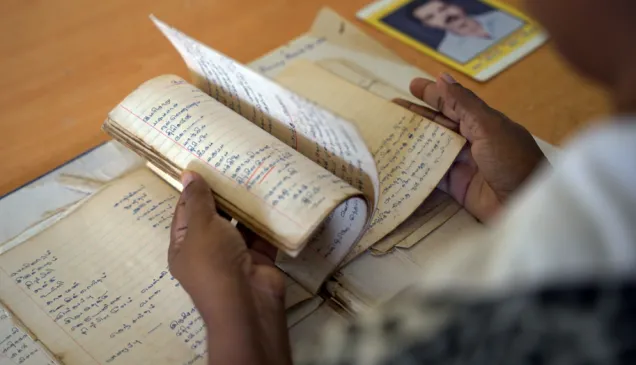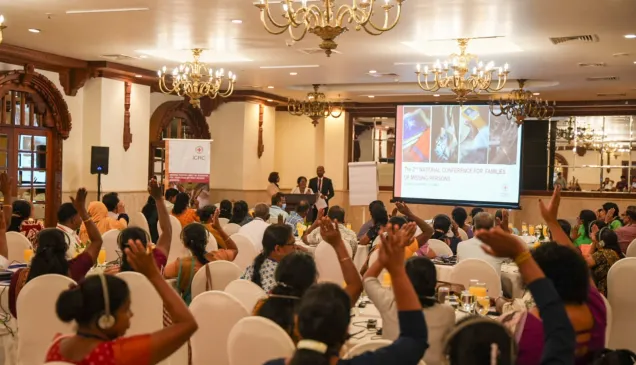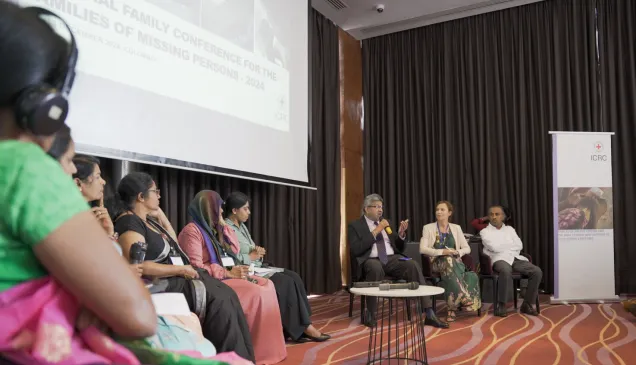Sri Lanka: People affected by the past conflict regain economic stability
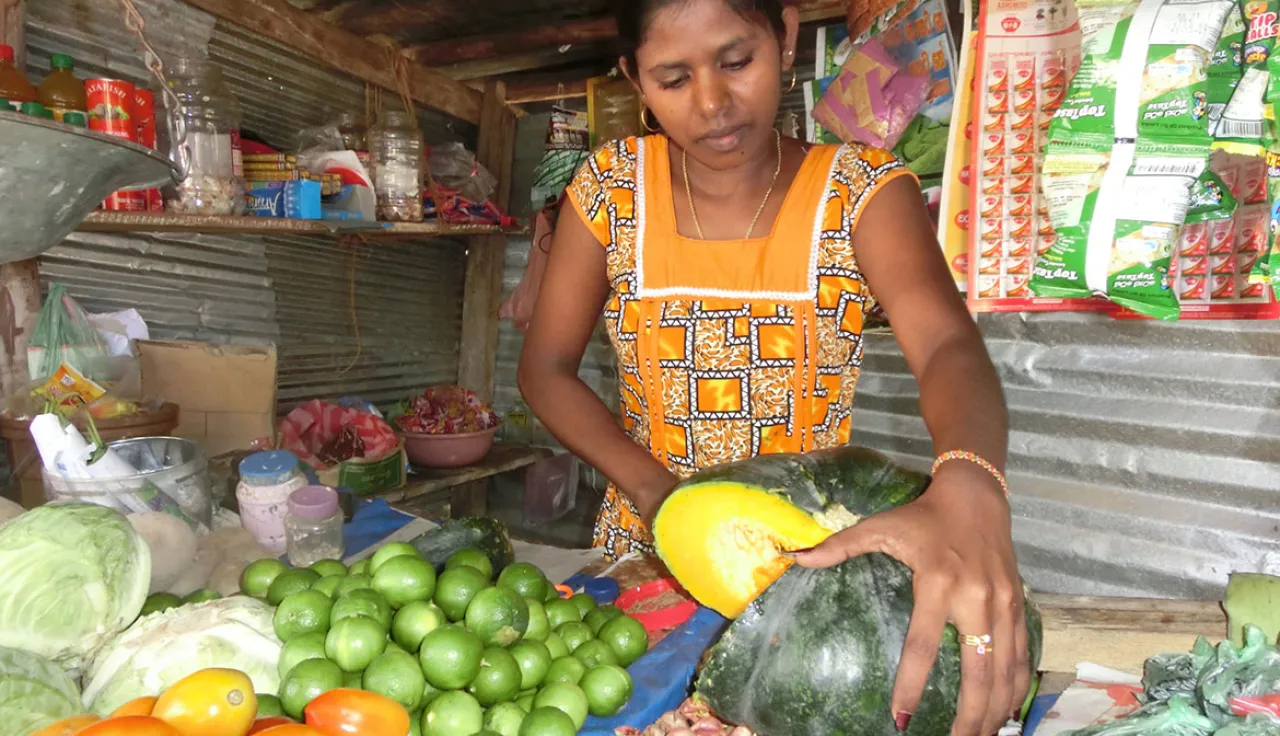
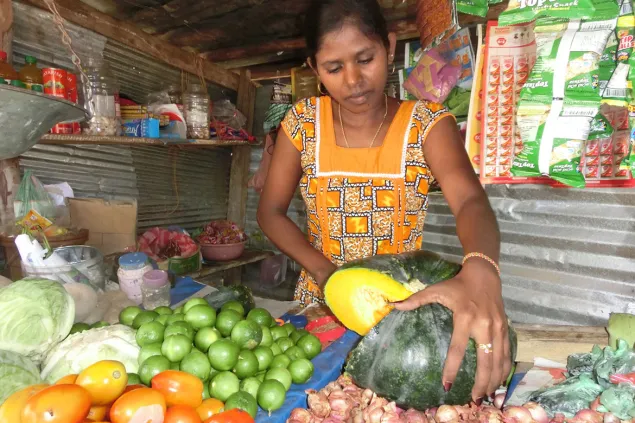
Kavitha (29), is a mother of two young children. She is a widow, having lost her husband to the conflict. She opened a small grocery store with her Micro Economic Initiatives cash grant, and is able to cover her daily household expenses and save for her children’s future with the money she earns.
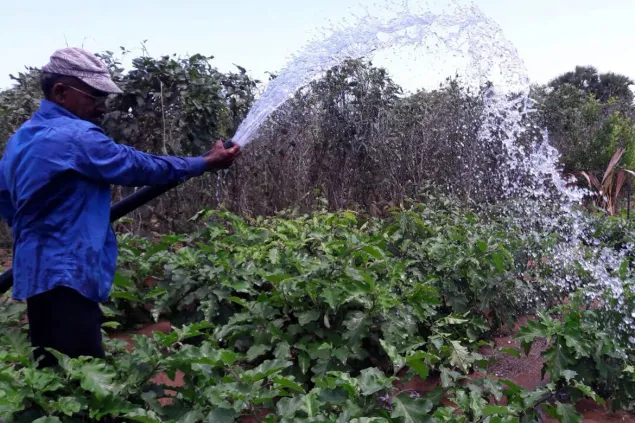
Tharmalingam (64) sustained severe injuries to his leg in the conflict. He also lost his house and the land he cultivated to earn an income. A skilled agro farmer, he used his Micro Economic Initiatives cash grant to start cultivating again. He tends the crop of fruits and vegetables until it produces a harvest from which he can earn an income to take care of his wife and two young daughters.
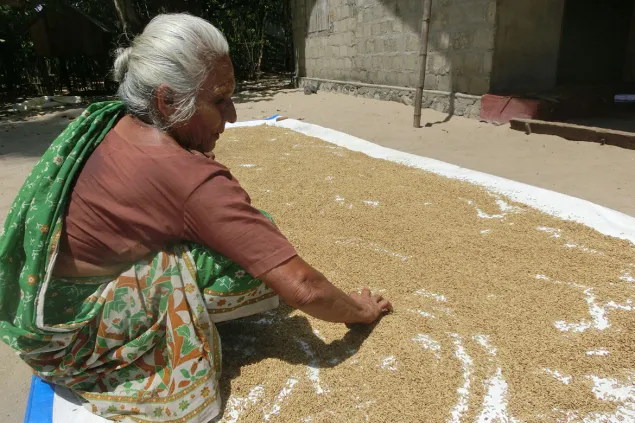
Sellamma had to bring up her three grandchildren after their father went missing and mother committed suicide. She supports them with the income she gets from rearing poultry and pounding rice for sale. She started both businesses with her Micro Economic Initiatives cash grant. While she gets about her daily chores, in addition to the death of her daughter, Sellama has to also cope with the absence of her two sons who are missing and her husband, who is dead.
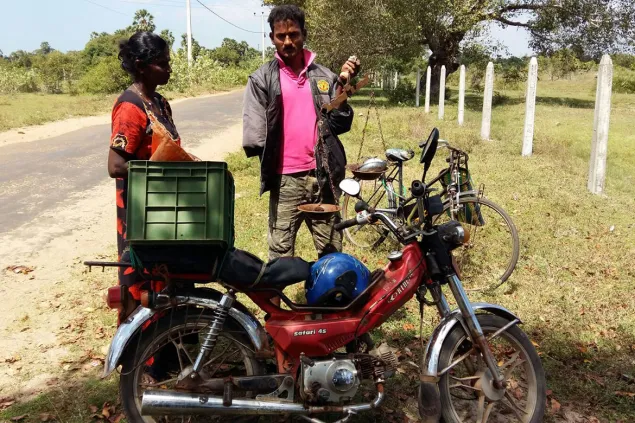
Arjunan is a mobile fishmonger and is both the supplier and salesman for his business. Although he lost one arm during the conflict, this does not deter him from riding 10-12km every day to buy the fish he needs to sell. He hopes that one day, he will be able to save enough to start cultivating crops and increase his income.
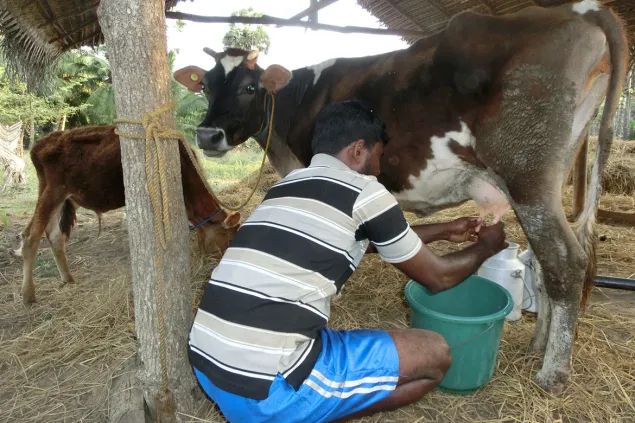
Sathiyaseelan, a released rehabilitee, works hard to develop his dairy and poultry farming business. Together with his wife, they plan to build a house with their savings.
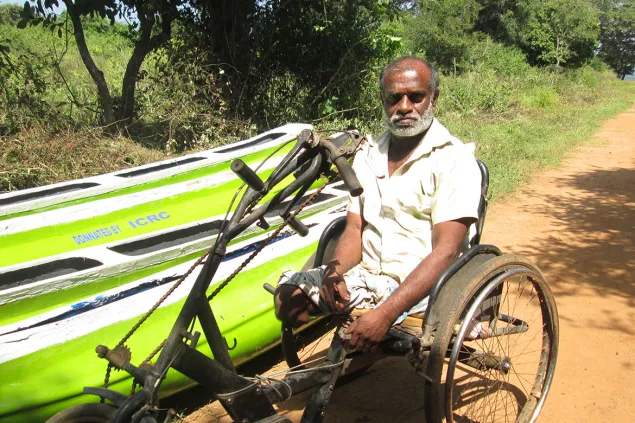
Selvarasa was a fisherman until he lost both his legs during the conflict. The canoe he received through the Community Based Livelihood Support programme helped him to resume his livelihood because he goes fishing in it with his son. He mends fishing nets to earn extra to save for his son’s higher education.
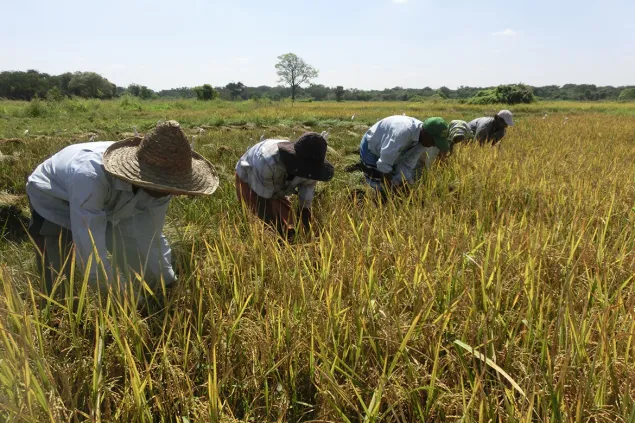
Rohana Athula, was a farmer before he was displaced. He returned home after the conflict ended and resumed farming with the support he got through the Community Based Livelihood Support Programme. “The seed paddy and farming equipment we received helped me and other farmers in this community to start growing paddy again,” said Rohana. “We are able to provide for our families, and I am happy I was able to buy a television, which my children enjoy.”
Years after the conflict ended in Sri Lanka, the most vulnerable families still struggle to meet their basic economic needs. Some have lost their breadwinner, while others have sustained life-long injuries, remain displaced, or have a family member who is in detention, is missing, or is a released rehabilitee. These families need help to make ends meet.
In Sri Lanka, the ICRC is responding to the needs of some of the most vulnerable households, to provide them with the means to acquire basic necessities to restore a decent life. We support vulnerable households in the north and east of the country to start a small business of their choice through our Micro Economic Initiatives programme, which is carried out in line with the Sri Lankan government's community empowerment programme. A member of the household receives a cash grant and basic training to develop this business into a sustainable source of income.
Vulnerable communities receive the support required to start income generating activities through our Community Based Livelihood Support programme, which is designed to meet sector-specific needs in the fisheries, agriculture, livestock, and small-business sectors. The programme is carried out through local community-based organisations, which ensures ownership of the project and guarantees its sustainability in the long term.

